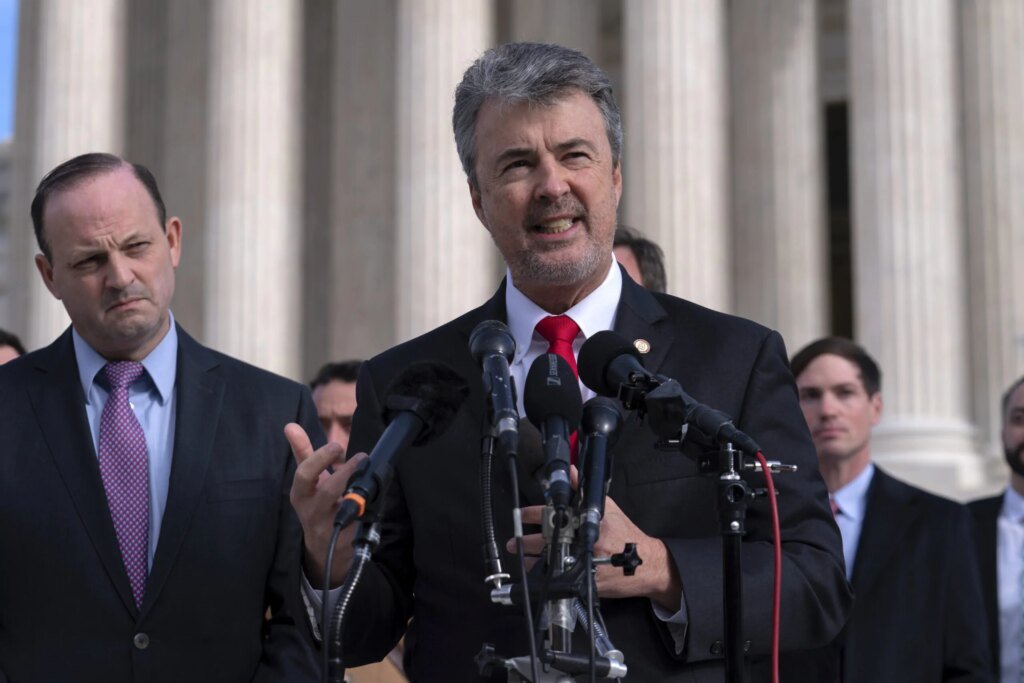Alabama AG Pushes for Supreme Court Review on Parental Notification of Student Gender Identity Changes
Alabama Attorney General Steve Marshall has joined a coalition of states urging the U.S. Supreme Court to evaluate whether parents should be informed about changes in their children’s gender identity at school. This initiative comes alongside a brief signed by attorneys general from 21 other states and one U.S. territory, relating to the case of Foote v. Ludlow School Committee.
The lawsuit was initiated by parents Stephen Hoote and Marissa Silvestri, who claim that teachers at Ludlow Public Schools disregarded their rights by implementing a policy that allowed students to choose different names or pronouns without notifying their parents. Their children, who attended Baird Middle School, were involved in this situation, with one child reportedly being encouraged to identify with a different gender at the age of 11, while another child began using preferred names as well.
The parents argue that the school’s policy, which facilitated this “social transition” without parental consent, infringed on their rights to guide their children’s upbringing.
In their petition, they ask the Supreme Court to reverse a February ruling from the First Circuit Court of Appeals, which concluded that the district’s policy did not violate parental constitutional rights and affirmed earlier decisions made by district courts in 2023.
The ruling stated that the parents did not adequately prove that their rights to direct their children’s treatment were violated, mentioning that the allegations did not involve any clinical conduct. Furthermore, the office of Attorney General Marshall discussed the situation, emphasizing that the policy undermines the fundamental rights parents have over their children’s care and development.
Marshall, who has positioned himself against certain educational policies, called for the Supreme Court to reverse the ruling. He argued that parents maintain their constitutional rights even when their children are in public schools, asserting that governmental authorities should not be permitted to make significant changes in a child’s life without their parents’ knowledge.
The brief contends that the First Circuit misinterpreted legal precedents related to the relationship between parents, children, and educational institutions, referencing relevant Supreme Court cases.
It criticizes the actions of Ludlow Public Schools as alarming, claiming that they violated explicit parental instructions and compromised the foundational parent-child relationship. The brief encourages the Supreme Court to address what it sees as increasing encroachments on this relationship by schools.
The legal tradition in Anglo-American law recognizes the inherent rights of parents, especially when it comes to the vulnerability of children, the brief continues. There has been a separate lawsuit filed in July related to similar issues, representing various parental rights groups.
On the other hand, the First Circuit’s decision has garnered support from LGBTQ+ advocacy organizations, which argue that it is crucial for schools to respect students’ privacy and confidentiality while also upholding non-discrimination laws.
Advocacy group GLAD celebrated the earlier ruling in favor of the Ludlow school policy, stating that schools have a responsibility to support students in a manner that promotes well-being and safety. They’ve referenced studies demonstrating that supportive school policies yield positive outcomes for all students.
In addition to Marshall, the brief includes support from attorneys general from states like Virginia, Florida, and Georgia, among others.
Earlier this year, the Supreme Court upheld laws that restrict gender-affirming care for minors. Various lower courts have recently declined to hear cases concerning school policies on transgender students’ rights, including challenges related to bathroom access and gender identity support plans.







